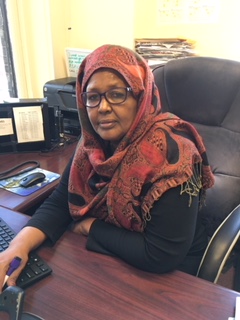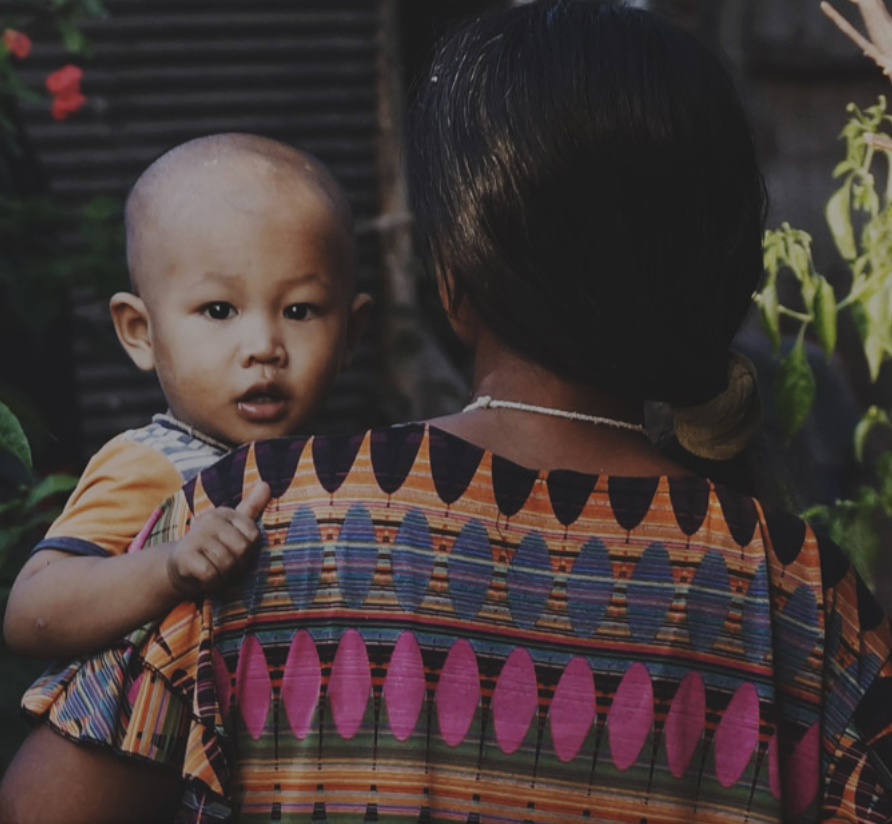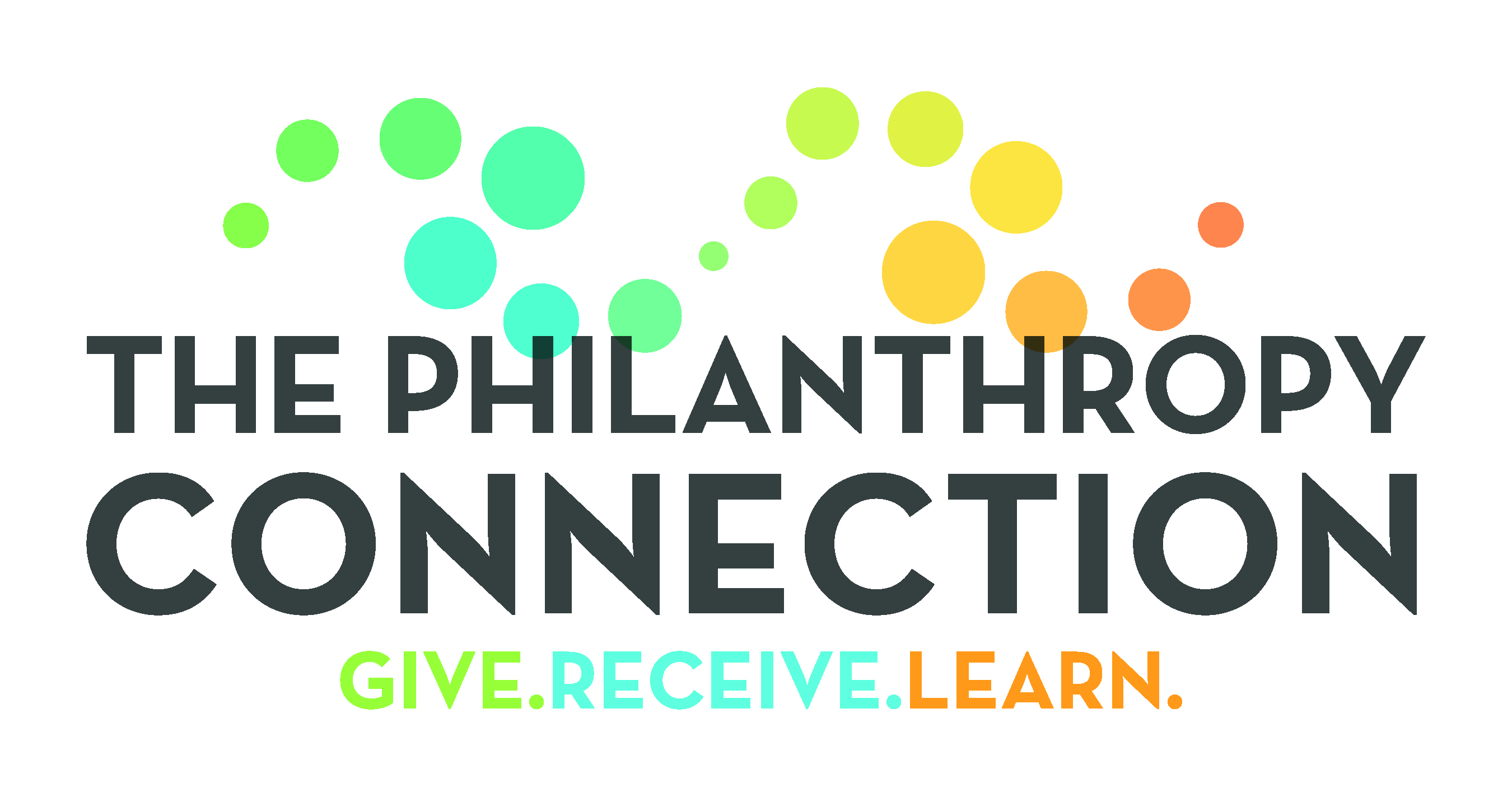The Interview with Miriam Gas and Sadia Fadil

The Refugee & Immigrant Assistance Center (RIAC) was founded in 1991 as the Somali Women and Children’s Association. RIAC’s mission is to promote cultural, educational, and socioeconomic development in the refugee and immigrant community. To that end, the organization provides refugees, asylees, and immigrants with resettlement, case management, counseling, outreach, and education services. It has offices in Boston, Lynn, and Worcester. Ellen Seidensticker spoke with Miriam Gas, Executive Director, and Sadia Fadil, Program Manager, to bring you more of RIAC’s story.
Tell us a little bit about the evolution of RIAC and some of the work you do.
In 2001, the organization became an official resettlement agency for the US Government and changed its name to RIAC to reflect this new status. RIAC’s resettlement is done through its affiliation with Ethiopian Community Development Council, one of nine national agencies authorized by the Department of State to resettle refugees in the US. During the first 9 months of 2017, RIAC oversaw the cases of 117 people from 16 countries. About 60% of these people were from Afghanistan, Somalia, Syria, and Haiti. The remaining countries of origin were widely spread across Asia, Africa, the Middle East, and South and Central America.
Official resettlement programs, and their financial support, are limited to three months. Beyond meeting short-term needs during the resettlement period, RIAC is committed to helping refugees and immigrants adjust to their new environment, in many cases for years beyond their arrival. This requires having both an understanding about and sensitivity to what refugees and immigrants experience as they encounter a new culture. War trauma, disrupted education, uncertainty about family reunification, and changes in family dynamics as children often integrate more quickly than parents are only a few of the issues that RIAC staff deal with daily.
How did you become involved with RIAC?
 Miriam Gas, RIAC’s Executive Director and founder of the Somali Women and Children’s Association: I came to the US in 1991 to visit my son at university. While I was here, clan-based opposition groups overthrew the government, precipitating a civil war in my home country of Somalia, a war that continues to this day. I was able to quickly sort out my asylee status and I never returned home. As a trained nurse, I wanted to get to work. My first formal job was at the Boston Medical Center where I was hired to deal with hepatitis B in the refugee community. As Somali refugees began to flood into the city, the Center realized that one person from the hospital working alone could not deal with the needs of this burgeoning population. At the same time, the rapid spread of HIV in the US and fear as to how this disease might affect refugees from conservative societies experiencing newfound freedom further strained the limited health care options.
Miriam Gas, RIAC’s Executive Director and founder of the Somali Women and Children’s Association: I came to the US in 1991 to visit my son at university. While I was here, clan-based opposition groups overthrew the government, precipitating a civil war in my home country of Somalia, a war that continues to this day. I was able to quickly sort out my asylee status and I never returned home. As a trained nurse, I wanted to get to work. My first formal job was at the Boston Medical Center where I was hired to deal with hepatitis B in the refugee community. As Somali refugees began to flood into the city, the Center realized that one person from the hospital working alone could not deal with the needs of this burgeoning population. At the same time, the rapid spread of HIV in the US and fear as to how this disease might affect refugees from conservative societies experiencing newfound freedom further strained the limited health care options.
I recognized that conventional programs for HIV prevention – condom distribution and safe sex education – were not appropriate for this population, whose religious beliefs forbade sex outside of marriage. Believing that a “whole family” approach was needed, I started a program to educate parents who could then educate their children. To entice women to training sessions, I started offering sewing lessons and used these as an opportunity to build skills, provide companionship for women isolated at home, and teach about HIV. This was the first program for which our fledgling organization received funding.
What was the trajectory after that first program?
 I was then joined by Sadia Fadil, a medical doctor, who despite having a young child to care for, shared my desire and eagerness to get back to work. Together, we started a program to address domestic violence, a common but silent problem in the refugee community where many men with limited job opportunities may feel marginalized and resentful of their diminished family status. Sadia took a course on domestic and gender-based violence and launched a program for the refugee community. She is still by my side today, as Program Manager – the training and coaching programs are vibrant.
I was then joined by Sadia Fadil, a medical doctor, who despite having a young child to care for, shared my desire and eagerness to get back to work. Together, we started a program to address domestic violence, a common but silent problem in the refugee community where many men with limited job opportunities may feel marginalized and resentful of their diminished family status. Sadia took a course on domestic and gender-based violence and launched a program for the refugee community. She is still by my side today, as Program Manager – the training and coaching programs are vibrant.
Tell us more about these programs.
These two early programs exemplify RIAC’s approach. Staff members are drawn from the communities served by the organization and speak their languages. They understand that many problems arise at the intersection of the personal background that refugees and immigrants bring from their countries of origin and new systems and practices they encounter here. It takes experience and intuition to figure out how some of these forces are interacting. One example from our early years is that the staff was observing high rates of high school dropouts in the community. It finally came to light that children, who were more fluent in English than their parents, were serving as interpreters for parent-teacher consultations. Reports of bad school performance were transformed into glowing approvals. We began helping parents understand the role of these teacher-parent conversations in a child’s success and, at the same time, sent adult interpreters for these meetings when needed. Over the following couple of years, the dropout rate declined.
 What do you find most satisfying about your work?
What do you find most satisfying about your work?
We are bubbling over with stories! So many high school and college graduations and awards of advanced degrees… so many of what we call “turn arounds.” These are instances where the initial expectations of a client far surpass RIAC’s resources and the realities of the job and housing markets in Boston. In one case, and in spite of years of trying interactions, one of our clients eventually came around to being a thankful supporter.
Too, simple things most take for granted are magical for others. We helped a gentleman who had just arrived in the US get his driver’s license. He was able to buy a car and bring his family to Boston. To this day, he provides transport to RIAC’s new arrivals and many others and opens his already full home to new arrivals until housing can be found.
How are you using TPC’s funding?
When we think about what keeps us up at night, uncertainty tops the list. Uncertainty about funding as well as about changes to the refugee and immigrant system in the US are related and pressing concerns. Fear among our clients of increased religious discrimination is a very close second. TPC’s grant supports our general operating expenses for a wide range of post settlement services. It cannot remove all of the uncertainty, but it helps to ease some of it.
